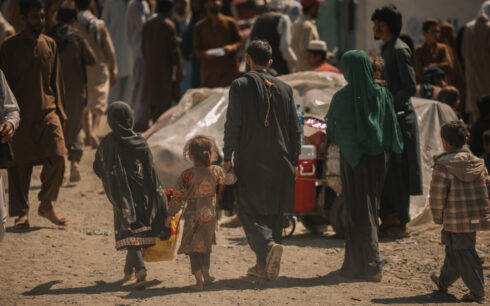Structural inequality and widespread poverty are making life increasingly difficult for Afghan returnees deported from neighboring countries, with many struggling to access basic services such as education and healthcare, the United Nations refugee agency said in a new report.
According to the Office of the UN High Commissioner for Refugees (UNHCR), only 14 percent of returnee households in Afghanistan have access to education services — significantly lower than the national average. The agency cited economic hardship and social conditions as key barriers to inclusion.
The report also noted that the Taliban’s ban on education for girls beyond the sixth grade has further reduced access to schooling, particularly for returnee families.
Among those who do access education, 47 percent of returnees report dissatisfaction with the quality of services, a rate considerably higher than among non-returnee households, the agency said.
Access to healthcare is similarly limited. The UNHCR reported that returnees consistently face greater difficulty obtaining medical care compared to other Afghan families, with geographic location, household composition, and resettlement status all influencing their access. Households that include people with disabilities have the weakest access to health services, according to the report.
To address these gaps, the UNHCR estimates that at least 154 new primary healthcare clinics are needed in the northern and eastern regions of the country.
The report comes amid ongoing mass deportations from Pakistan and Iran, which have stepped up forced returns since the Taliban’s return to power in 2021. Hundreds of Afghan families are being expelled daily, many without adequate resources or support upon arrival.
The Norwegian Refugee Council, in a separate report, warned that the forced repatriations are compounding an already dire situation in Afghanistan, a country grappling with deepening humanitarian and economic crises.




